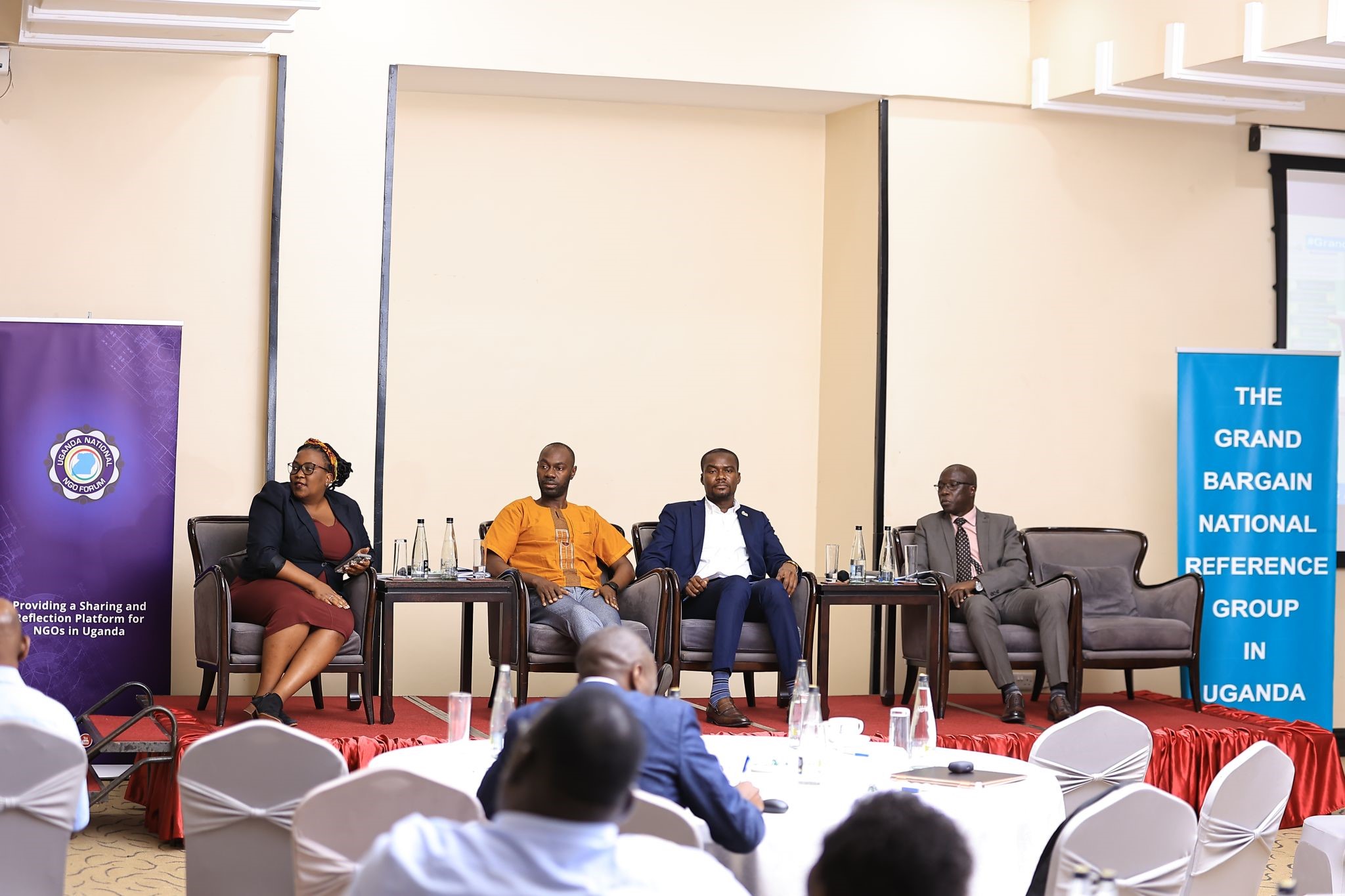
Rethinking Aid: The Role of Quality Funding in Driving Localization and Impact
The growing conversation around localization and quality funding took center stage during a panel session; “Quality Funding: Flexible and Multi-Year Funding Approaches,” at the inaugural National Refugee Group (NRG) meeting, held on 11th September, 2024 in Kampala, Uganda. The session featured a robust panel of speakers including Ms. Sheila Namugga from the Refugee Led Organization Network (RELON), Mr. Henry Mayanja from Street Child, Dr. Moses Isooba from the Uganda National NGO Forum, and Mr. Daniel Mumuni from Catholic Relief Services (CRS).
The discussion began with Ms. Sheila Namugga sharing RELON’s experience of receiving its first official grant of $5,000. While initially seen as a significant boost, the funds were quickly depleted considering the scale of work involved. “Quality funding means flexibility—allowing the organization to focus on areas where we can make the most impact, rather than being constrained by donor preferences,” Namugga stated. This sentiment echoes the experiences of many local organizations, which often find themselves bound by donor-imposed restrictions.
Namugga illustrated the benefits of multi-year funding using a grant from the Conrad N. Hilton Foundation as an example. This funding not only supported RLO advocacy and capacity building but also covered core institutional costs, enabling RELON to sustain operations beyond project timelines. “Multi-year, flexible funding enables LNGOs to grow, build staff experience, fundraise, and advocate more effectively,” she emphasized.
Mr. Henry Mayanja, Country Director of Street Child, then highlighted two key challenges in accessing funding: competition with International Non-Governmental Organizations (INGOs) and the complexity of the application process. He introduced an innovative initiative within the UNICEF-hosted education consortium, which set aside 25% of funding for local actors. “The project has exceeded expectations, reaching 33% direct funding to local actors due to the high quality of proposals we received,” Mayanja revealed, attributing the success to local actors’ ability to present innovative ideas.
On a broader note, Mr. Daniel Mumuni from CRS praised Uganda’s leadership in driving the localization agenda. He noted, “The conversation is no longer about just funding local actors but ensuring we provide quality funding.” Mumuni shared that CRS not only assesses the capacity of local partners before providing funding but also supports them during the funding period through financial monitoring and mentorship, using internal resources to bridge capacity gaps when needed. This approach aligns with the organization’s ALLRight Fund and Empower project, which focus on building local leadership and institutional systems, respectively.
Dr. Moses Isooba from the Uganda National NGO Forum provided a thought-provoking perspective by introducing the concept of “warm and cold money.” He explained, “‘Warm money’ refers to resources given based on trust, often small in volume but without the complications of strict and inflexible reporting requirements, while ‘cold money’ is purely financial and shrouded in mistrust.” This distinction reflects the nuanced relationship between donors and local actors, where inflexible conditions can hinder effectiveness.
Dr. Isooba called for a balance of both warm and cold money to support sustainable development and localization efforts. He also emphasized the need to address both quality and quantity funding: “We as CSOs have become accustomed to a starving lifestyle, where we receive small amounts of funding. We need to address both quality and quantity funding.”
Mr. Gard Benda, Country Director of World Voices Uganda, took the plenary session as an opportunity to reflect on the Grand Bargain’s 2022 independent review, which revealed that only 11% of the commitments had been met. “Financial flows for quality funding stand at less than 3%, far below the 25% target,” Benda stated, underscoring the urgency to accelerate efforts toward achieving the goals set out in the Grand Bargain.
The plenary discussion also included inputs from Tunaweza, a local organization, which secured funding from PEPFAR for AIDS awareness but primarily focuses on providing assistive products for people with disabilities. “How can funders be encouraged to provide flexible funding that allows organizations to respond to the needs they have identified?” questioned a representative from Tunaweza.
A government representative added to the conversation by suggesting that quality funding should address problems from start to finish. He expressed concerns over project overheads, where a significant portion of funding goes to administrative costs, leaving limited resources for actual interventions.
In response to questions raised, Mr. Mayanja urged local actors to actively promote themselves and seek visibility. He emphasized that indirect costs received by INGOs should also be accessible to local partners to cover intervention gaps and build reserves. On co-creation, he added, “Local partners should be involved from the design to the implementation phase, ensuring clarity about roles and funding allocation.”
Dr. Moses Isooba concluded by cautioning against equating localization with decentralization. “Localization involves deeper changes, such as empowering volunteers and smaller groups,” he stated. He emphasized that as the sector moves towards a post-donor and post-INGO environment, it is crucial to align actions and decisions with this reality.
The panel session ended on a hopeful note, with speakers agreeing on the need for continued dialogue and collaborative action. As the sector strives for equitable partnerships, multi-year, flexible, and quality funding models appear to be key in supporting local organizations to thrive and drive impact in their communities.



